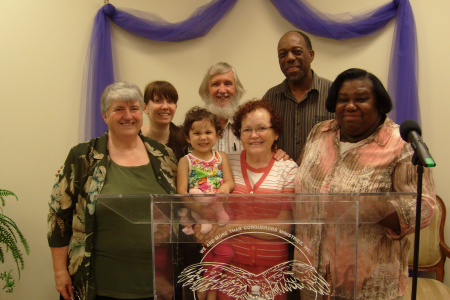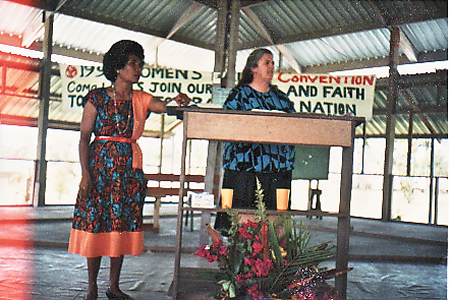The Book of Hebrews Part 1
I first shared these studies on the Book of Hebrews some years ago through the newsletter of the ministry I was leading at the time. They were very well received, so I have decided to revive them and publish them here.
The Book of Hebrews sits in the New Testament between the epistles of Paul and those of the other apostles. The reason for this is simple: nobody is really sure who wrote the book of Hebrews. Traditionally, it was accredited to Paul, and certainly the ideas it presents are totally in accord with Paul’s teachings, but the structure of the letter in Greek is so unlike the writings of Paul that most scholars today do not believe he was the author. Some have suggested Luke, Barnabas or Apollos as possible authors.
The fact that the author speaks about the Temple in the present tense, with no suggestion that it had been destroyed, indicates that the book was probably written before the destruction of the Temple in AD 70. Other than that, there is no indication of a more precise date.
Very clearly, the book was written to Jewish Christians who, because of the pressures around them, were in danger of slipping away from their Christian faith. Some were being drawn back into the ritual and tradition of Judaism, others were staggering under persecution, others were simply losing site of the person of Jesus and growing cold in their relationship with Him. These Jewish Christians may have been in one specific location (some believe in Rome, others in Jerusalem), or the book may have been addressed to Jewish believers in general, and circulated among them.
More than any other book of the Bible, Hebrews focuses on Jesus, presenting Him as “better” in every possible aspect. He is superior to the prophets and the angels. He is superior to Moses and to the Levitical priesthood. The covenant He brought about is better than that brought through Moses. His sacrifice is better than the Old Covenant sacrifices. He has entered into a greater tabernacle than the Temple. His blood is more effective than the blood of bulls and goats.
As a result, the readers are urged to a greater faith and greater perseverance. The book is scattered with increasingly stern warnings about the dangers of falling away from faith. In the light of “such great salvation” (2:3), how could anybody want to turn back to the old way of living?
So, let’s begin to look closely at this wonderful book. (NB: Because of copyright restrictions, I will be using the King James version for this study, but will be expressing the words in modern language.)
(1) God, who at different times and in different manners spoke in times past to our fathers by the prophets, (2) has in these last days spoken to us by His Son…
God is the subject of the first sentence in Hebrews, setting the tone for the whole book. In fact, its thirteen short chapters contain the word “God” sixty-eight times. The writer wants to make it very clear from the outset that the things he is going to be discussing do not originate in man.
What’s more, God chooses to communicate with man. It is God Who spoke in the past, it is God Who is speaking now. He is not off in some far distant corner of the universe doing His own thing; rather, He is and always has been vitally involved in the affairs of man.
The fact that God speaks to man is in itself awesome. The infinite creator and ruler of the universe lowers Himself to speak to such tiny, finite creatures. The Holy One speaks to sinners! We could spend a month or more just meditating on the wonder of that truth.
In the past, under the Old Covenant, much of the verbal communication from God to man was done through the prophets. Of course, there was always the non-verbal communication of nature, as Paul points out in Romans, and even without the spoken word this should have been enough to make us aware of God’s reality and power. However, God wanted to communicate more directly and specifically, so He did so through human instruments.
Under the Old Covenant, the people did not have the indwelling Holy Spirit as believers do under the New Covenant. Rather, the Spirit of God would come upon the prophet in such a way that the prophet knew the words God wanted spoken, and delivered them to the people.
The system worked, but not perfectly. The words of God were still filtered through the human vessel, and as we read through the Old Testament we can recognize the individual characteristics and personalities of the prophets as they brought forth God’s word. Think for a moment of Jonah, walking through the streets of Nineveh and calling the people to repentance. The words were God’s, but the heart of Jonah was very different from the heart of God. Jonah wanted the people to be destroyed, God wanted them to be delivered. Jonah was bringing them God’s message, but not demonstrating to them God’s character.
Now, God has spoken through His Son. This is not a new revelation. It is still God speaking. There is a continuity from all that God has spoken before. All that He has spoken in the past has been a preparation for this present communication.
The great difference is, the Son not only brings God’s words: He also brings His character. The Son does not merely bring God’s message: He is God’s message. He doesn’t just hear God’s words: He is the Word.
(2b) … Whom He has appointed heir of all things, by whom He also made the worlds;
In their turn, each of the prophets stepped into the pages of history. Each played his or her part, presented his or her message, then exited.
Jesus, however transcends the whole of history. When all is finished, and the universe has been rolled up like a worn-out garment, Jesus will stand as the heir of all things. After time is over, He will be there. Not only that, but He was there before time began. Everything that exists came into being through Him. Although He spent only a brief period actually walking on this earth, He – and, therefore, His message – is not limited by time.



















